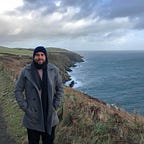Manus Island refugees have medical care, phone and Internet access restricted
Detainees at the Manus Island detention centre who have received a positive final refugee status determination (also called Ministers Final Determination — MFD, or double positive) and refuse to move to the East Lorengau Refugee Transit Centre are having restrictions placed on their access to medical care, as well as Internet and phone usage, in order to pressure them to leave the detention centre.
A letter issued by the Papua New Guinea Immigration and Citizenship Service Authority states that a detainee at Manus Island who has received a positive final determination and refuses to leave will be placed on “comparable measures” commencing today (May 19).
The measures are:
- Access to Internet and phone will be reduced from three sessions per week to one session per week.
(Internet sessions are one hour each, phone sessions are 30 minutes each).
2. Access to the medical clinic will be allocated to one day per week.
3. No longer receive 25 points at the start of each week as previously provided. He will be able to earn up to 25 points if he chooses to attend COPP (Cultural Orientation and Preparation Program), English and Tok Pisin language classes.
The points are used to buy items from the canteen.
The letter states that the refugee can also earn 3 Kina for each hour of COPP he attends but the funds will not be made available until he is at the East Lorengau centre.
In January, Papua New Guinea’s Immigration Minister, Rimbink Pato, told Radio New Zealand that the PNG and Australian governments wanted to restrict all communications coming out of the Manus detention centre.
“Nobody has access to the centre except the PNG and the Australian government, so with the internet and all the other access that is available, they’re directly linking in with the asylum seekers, and so how we can control that information is also being addressed by the Australian government and the PNG government so that they will get correct information that is in their best interests.”
Guardian Australia reported in January that it had obtained a Transfield “rights and responsibilities” document which states “You will be able to communicate freely with family, friends, diplomatic or consular representatives, and other representatives”.
Sources have told me that phone and Internet access is often monitored by guards.
Mobile phones are banned at the detention centre.
The latest Operation Sovereign Borders update, issued 5 May, states “118 refugees have been given a positive final determination and 20 of those individuals were residing at the East Lorengau Refugee Transit Centre. The remaining 98 were accommodated at Manus RPC.”
A refugee at the East Lorengau Refugee Transit Centre has told me as of today, there are 38 refugees living there.
A source has told me there are up to 50 men placed on the restrictions at Manus Island, with more being added each week.
Detainees at the Manus Island detention centre have told me that men who have received their positive final determination are refusing to move to East Lorengau because they were brought to PNG against their will and they fear for their safety if they were to leave the detention centre and live at East Lorengau.
In February 2014, asylum seeker Reza Barati was murdered and scores of asylum seekers were injured during attacks on the Manus Island detention centre.
Gay detainees also fear they could be attacked or arrested and jailed as homosexuality is illegal in PNG, punishable by up to 14 years in jail.
Many detainees say they are determined that they will not go to the East Lorengau Refugee Transit Centre, despite the “comparable measures.”
Update: On Wednesday morning I called Immigration Minister Peter Dutton’s office. A spokesman said they were unaware of these measures and couldn’t comment.
